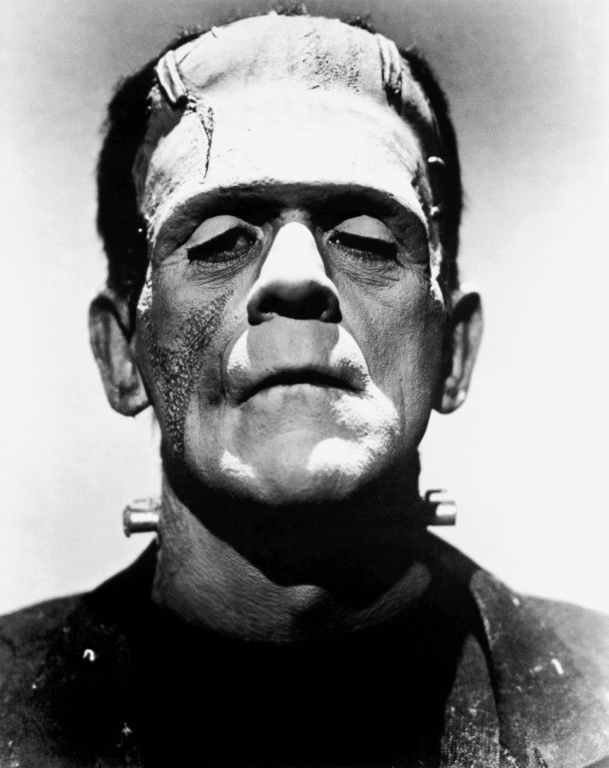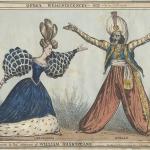Over the years, I’ve tried showing how Western cultures care about honor and shame. These are not mere “Eastern” concerns. In keeping with this point, I’ll spend a few posts highlighting examples of honor and shame in Western literature. Today, we begin with Frankenstein.
Mary Shelley’s Frankenstein offers more than just a tale of scientific ambition gone awry. Beneath the surface, it explores how honor, shame, and reputation drive the characters’ decisions and shape the trajectory of the narrative. These themes are intricately woven into the identities of both Victor Frankenstein and his creature, exposing how their obsession with reputation and fear of shame contribute to their tragic downfalls.
Analyzing Frankenstein through the lens of honor and shame reveals the destructive power of social expectations and the fragile nature of human worth when it is tethered solely to reputation.
The Honor-Shame Dynamic in Victor Frankenstein’s Identity
Victor Frankenstein is driven by a deep desire for recognition and honor. From the outset, his intellectual ambition is not merely about advancing knowledge but about earning glory. He yearns for the kind of reputation that would set him apart from his peers and immortalize his name.
His passion for creating life stems from a desire to achieve something extraordinary—a scientific breakthrough that would bring him honor and elevate his standing in society. Yet, as we see throughout the novel, this quest for honor is both a motivating force and a crippling burden.
Victor’s fear of shame and public disgrace is equally powerful. When he succeeds in animating the creature, his triumph is immediately overshadowed by horror and regret. Rather than taking responsibility for his creation, Victor abandons it, motivated by the fear of what others might think if they discovered his monstrous experiment.
The shift from his earlier pride to his later shame underscores a key aspect of the honor-shame dynamic: when the pursuit of honor fails, it often spirals into profound shame. For Victor, the shame of having unleashed a grotesque being into the world becomes unbearable, leading him to hide his actions and avoid confrontation.
Victor’s life after the creature’s “birth” is marked by a desperate attempt to maintain his honor and avoid public humiliation. This is evident in his refusal to confess his role in the deaths caused by the creature, even when innocent people suffer as a result.
His silence is not merely self-preservation; it’s an effort to protect his reputation. Victor’s honor is built on a fragile foundation, one that crumbles when faced with the consequences of his ambition.
The Creature’s Struggle for Honor and the Burden of Shame
The creature’s experience in Frankenstein offers a poignant exploration of how shame can become the defining element of one’s identity. From the moment he gains self-awareness, the creature is acutely aware of his otherness. He recognizes that he is an object of horror, judged solely by his appearance.
Despite his intelligence and capacity for emotion, he is continually rejected and despised by society. This rejection isn’t just a matter of exclusion; it is a deep-seated shaming that brands him as inherently unworthy of honor.
Shelley masterfully illustrates how the creature internalizes this shame, leading him to see himself as monstrous, even though his initial desires are innocent and noble. He longs for companionship, love, and acceptance— basic human needs that are continually denied him because of how others perceive him.
In many ways, the creature’s quest for honor mirrors Victor’s own ambitions, but while Victor seeks public acclaim, the creature seeks simple human dignity.
The tragedy of the creature’s story lies in how society’s relentless shaming drives him toward violence and vengeance. His initial hope for honor— through gaining love and a sense of belonging—gradually mutates into a thirst for revenge as the weight of shame becomes unbearable.
The creature’s final act of confronting Victor underscores this tragic shift. He no longer desires the honor of being recognized as worthy of love; instead, he seeks the twisted honor of being acknowledged as a force capable of inflicting pain on the one who created and abandoned him.
This transformation highlights a crucial aspect of the honor-shame framework: when individuals are persistently denied honor and subjected to shame, they may embrace dishonor as a form of resistance and self-assertion.
Reputation and the Social Framework of Honor and Shame
Both Victor and the creature’s struggles are exacerbated by the societal framework that prioritizes reputation above all else. In Frankenstein, reputation is depicted as both a prized possession and a heavy burden. Victor’s family, for instance, represents the respectable social standing he seeks to preserve.
His reluctance to confess his actions, even as the consequences become deadly, reveals how tightly his identity is bound to maintaining this social image. The irony is that, in his obsession with preserving his reputation, Victor ultimately destroys it. His life ends in disgrace, consumed by the very shame he sought to avoid.
The creature’s experience also highlights how reputation can be weaponized as a tool of exclusion. He is judged solely by the image he presents—a grotesque, frightening figure—and this superficial assessment becomes the entirety of his identity in the eyes of society.
The novel reveals how societal honor is often based not on intrinsic worth but on appearances and conformity to social norms. The creature’s external form makes it impossible for him to gain any sort of honorable reputation, dooming him to perpetual shame regardless of his internal virtues.
The Fragility of Honor and the Weight of Shame
Frankenstein vividly portrays the precariousness of a life built on the shifting sands of reputation. Both Victor and his creature are trapped in cycles of honor and shame that ultimately lead to their ruin. For Victor, the pursuit of honor devolves into a consuming fear of shame, leading him to forsake both responsibility and integrity. For the creature, the quest for honor becomes a quest for vengeance as society’s rejection leaves him with no other means of asserting his worth.
The novel invites readers to consider the consequences of a worldview where identity and value are inextricably tied to public perception. In a culture obsessed with reputation—whether through social status, achievements, or appearances— Frankenstein serves as a cautionary tale.
When honor and shame become the ultimate measures of a person’s worth, the result is not human flourishing but isolation, destruction, and despair.














